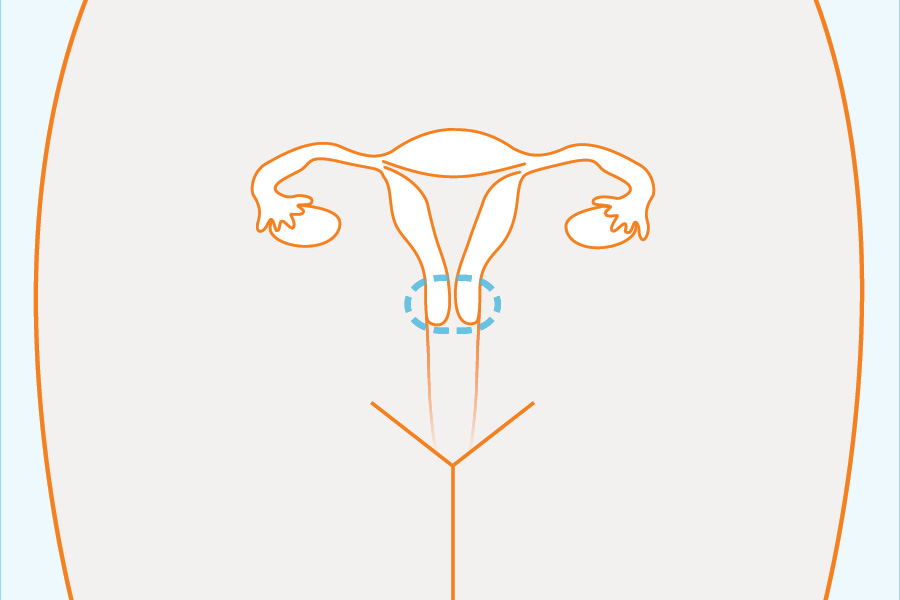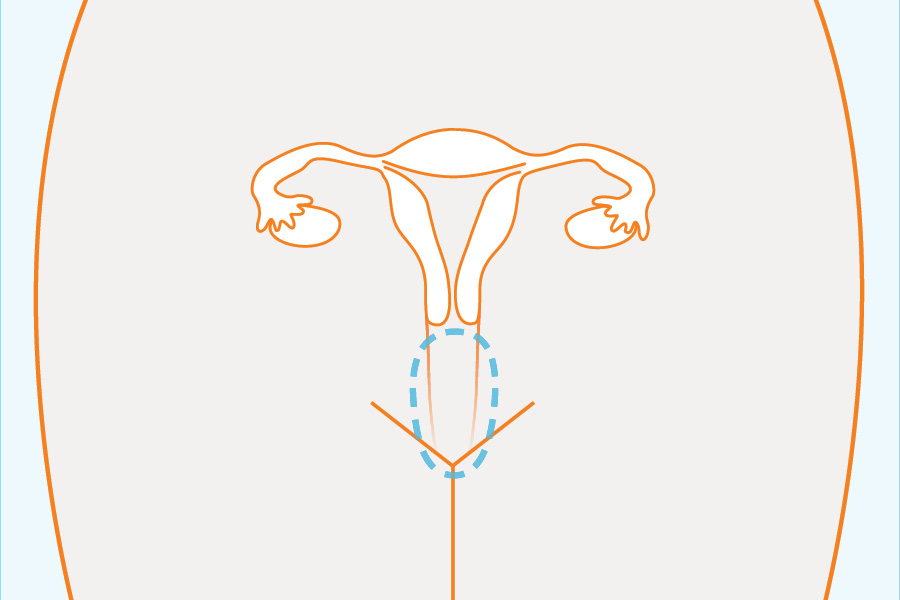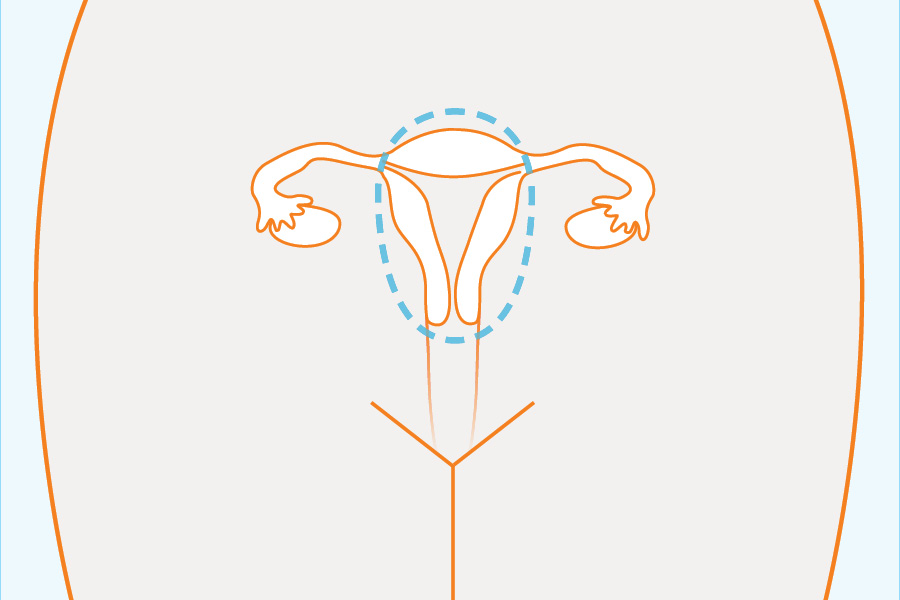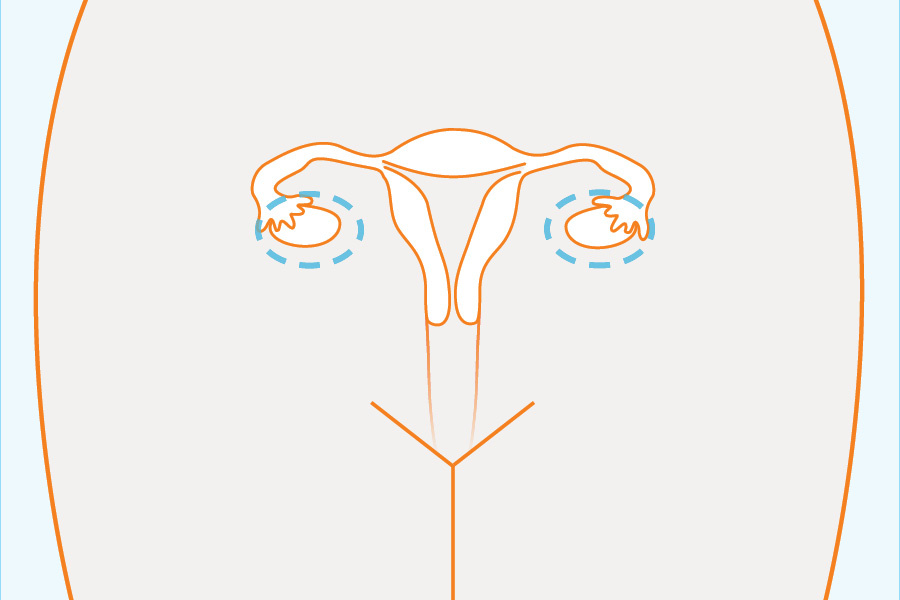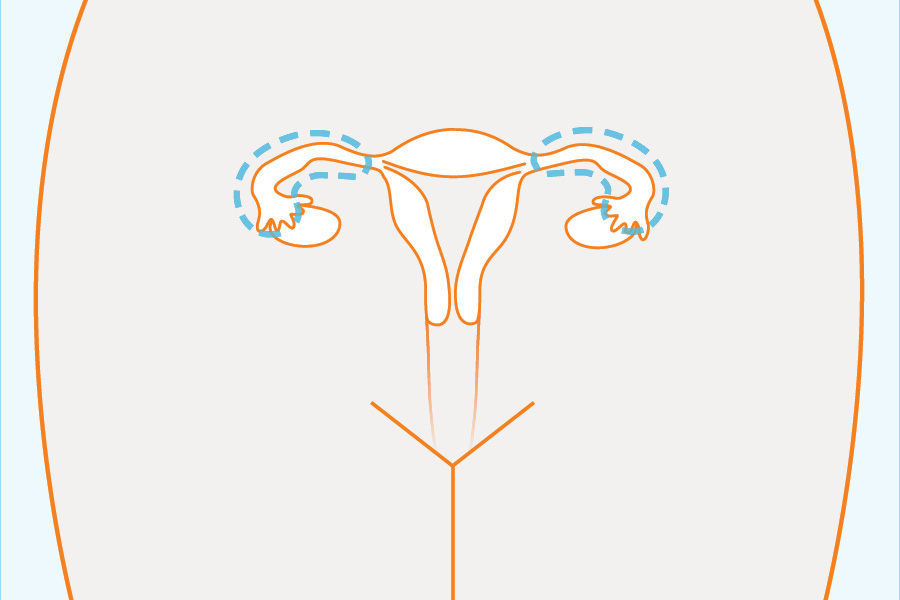The Basics
What is chlamydia?
Chlamydia is an infection caused by bacteria called chlamydia trachomatis. Chlamydia can infect both males and females. If a female has chlamydia and is not treated, she can develop serious and permanent damage in her reproductive organs.
How common is chlamydia?
Chlamydia is one of the most common STDs in the United States. About 2.8 million new infections of chlamydia occur every year in the United States. Young people are much more likely to get chlamydia than older people. About 1 in 15 sexually active females aged 14-19 has chlamydia.
Where does chlamydia live?
In females:
- Labia (lips of the vagina)
- Inside the vagina, on the cervix (opening to the uterus)
- Uterus (where babies grow if you're pregnant)
- Fallopian tubes (the tubes that eggs travel through from the ovaries to the uterus)
In males:
- Penis (in the urethra - see below)
- Epididymis (the tube that carries sperm)
In males and females:
- Throat
- Anus and rectum (tube leading up from your anus to your intestines)
- Rectal fluids (fluids that come out of the anus)
- Eyes (especially babies who are born to mothers with chlamydia)
- Urethra (the hole and tube you pee through)
The bacteria cannot survive outside the human body for long. It will only stay alive as long as it is wet, which is usually only seconds to minutes.
Symptoms and Disease
If I have chlamydia, will I develop symptoms?
Most people who get infected with chlamydia do not have any symptoms and are not aware that they are infected. About 75% of women and 50% of men with chlamydia have no symptoms.
What are the symptoms of chlamydia?
If you are infected with chlamydia and do get symptoms, you may notice:
For females:
- A change in vaginal discharge (fluid leaking out of the vagina)
- Vaginal pain or itching
- A change in periods or more painful periods
- Bleeding or spotting from the vagina between periods or after sex
For males:
- Discharge from the penis (fluid leaking out when not ejaculating)
- Pain or an itchy feeling at the head of the penis
- Itchy feeling inside the penis
- Swollen or tender testicles
For both males and females:
- Pain in the lower stomach (pelvic pain), including pain during sex
- Stinging or burning when urinating (peeing)
- The need to urinate (pee) more often
- Discharge, diarrhea, or blood coming out of the anus (if you are infected in the rectum or anus)
- Eye infection (if you are infected in the eye)
Many symptoms of chlamydia are similar to symptoms of other health issues. So, if you show any of these symptoms it is best to talk to a doctor or other health care professional.
How quickly do the symptoms of chlamydia develop?
Chlamydia symptoms can show up as early as 5 days after infection, and as late as six weeks after infection. It is important to know that even if you do not have symptoms or your symptoms go away, you can still have chlamydia.
What can happen if I don't get treated for chlamydia?
For females:
- Pelvic inflammatory disease (PID)
- Pregnancy complications (like ectopic pregnancy, where a fertilized egg starts growing outside of the uterus)
- Infertility (problems getting pregnant)
- Long-term pelvic pain
- Pregnant women can pass chlamydia to their babies
For males:
- Rarely, epididymitis (pain and swelling in one or both testicles, which can make a man infertile)
- Infertility (unable to get a female pregnant)
- Reactive arthritis (swelling and pain in the joints)
For both males and females:
- If you have chlamydia, and don’t get treated, you will have a greater chance of getting or spreading HIV (the virus that causes AIDS).
- Rarely, untreated chlamydia can cause something called Reiter's syndrome. The symptoms of Reiter's syndrome are arthritis (pain or stiffness of joints) with skin problems and swelling of the eye and urethra (the hole and tube you pee through).
Transmission
How is chlamydia spread?
It can be spread:
- During vaginal sex (both partners)
- During anal sex (both partners)
- Performing oral sex on a male (less likely)
- Receiving oral sex if you're a male (less likely)
- From mother to child during birth
- Through the sharing of sex toys (if inserted in the vagina or anus) within a short time period (seconds to minutes)
- Rarely, by touching your eye after coming in contact with the infection
How can I prevent getting chlamydia?
- Abstain from (avoid) having vaginal, anal, and oral sex
- If you have vaginal or anal sex, use latex male condoms or female condoms
- If you have oral sex, use condoms or a latex or plastic barrier
- If you share insertive sex toys with your partners, wash the toys regularly and put a male condom on the toy (which you change every time the toy is inserted into a new person)
- Get tested regularly
It is important to know that you can get chlamydia even when your partner has no symptoms. For more tips, visit our Protect Page.
If I have chlamydia, how can I prevent giving it to someone else?
- Get treated, and don't have sex until 7 days after your treatment is done
- Get tested again 3 months after your treatment is done
- If you feel safe, tell your sex partners that you have the infection, so they can protect themselves and get tested.
- Once you are cured, use latex male condoms or female condoms when you have vaginal, anal, or oral sex
- Abstain from (avoid) having vaginal, anal, and oral sex
- If you share insertional sex toys with your partners, wash the toys regularly and putting a male condom on the toy (which you change every time the toy is inserted into a new person)
It is important to know that, if you are infected, you can give someone else chlamydia even when you don't have symptoms. For more tips, visit our Protect Page.
Can I still infect other people with chlamydia if I don't have symptoms?
Yes, even if you don't have symptoms, you may still be able to transmit chlamydia if you haven't been treated.
Tests, Results, & Treatment
How long do I have to wait to get tested for chlamydia?
To make sure your test results are correct, most doctors and websites suggest that you wait 1-3 weeks after the day that you were with someone who might have had chlamydia.
How do you test for chlamydia?
There are two ways to test for chlamydia:
Urine tests: You will pee in a cup and then your urine will be tested. Both males and females can get a urine test. To get the most accurate results, do not urinate (pee) for 2 hours before a urine sample is collected.
Swab test: Females will have a cotton swab of the vagina (or cervix, which is inside the vagina). Males will have a cotton swab of the urethra (the hole that pee comes out of). Sometimes a swab is taken from the throat or rectum, to check for infection there.
How long do I have to wait for results for chlamydia?
Around 5-7 days, depending on where you got tested and where the lab is where your test will be sent. While you're waiting for your results, it's a good idea to use a condom or not have sex.
Where can I get tested for chlamydia?
You can get tested at a doctor's office. You can also go to a clinic that tests for chlamydia. See our Test Page to get more information and search for clinics near you.
Is chlamydia curable?
Yes, chlamydia is curable.
What is the treatment for chlamydia?
Chlamydia is easily treated and cured with medication. You will usually get antibiotic pills, such as azithromycin and doxycycline. Some types of medication only have to be taken once, and others have to be taken for a week. Finish taking all the medication (even if your symptoms go away) and take your pills on the days that you are told to. You can always discuss treatment options with a doctor or other healthcare professional.
Can I use medication I already have to treat chlamydia?
No. If your medication is old or the wrong type, it may not cure you.
Can I share my chlamydia medication with my partner?
No. You need to take all of your medication to be cured. A doctor or other healthcare professional might give you medication for your partner(s). If that happens, you can give that medication to your partner(s).
Do I need to do anything after I'm cured for chlamydia?
After you are cured of chlamydia it is important that you:
- Inform your partners, if you feel safe doing so
- Make sure that anyone you are having sex with is tested and treated (if they also have chlamydia), so you don't get it again
- Get tested again in three months
Partner Notification
Should I notify my partner(s) if I have chlamydia?
Yes, if you feel safe doing so. Notify your past and current partners so they can get tested and treated. Let them know that chlamydia can be easily tested for and cured.
Who should I notify if I have chlamydia?
The Centers for Disease Control recommends you tell anyone you had vaginal, anal, or oral sex with in the 60 days before you were diagnosed or first noticed symptoms. Below is our more detailed take on who you should tell:
Past Partners: We recommend that you notify anyone you had sex with in the past 6 months. If you haven't completed treatment yet, we suggest that you tell anyone you have sex with from now until you finish your medication. Below are some recommendations on which of your past partners to notify.
If you had symptoms:
You were probably infected sometime in the three weeks before your symptoms showed up. We recommend that you tell anyone you had vaginal, anal and/or oral sex with in the four weeks before you developed symptoms (to be safe). Also tell anyone you had sex with since you noticed symptoms, and up until one week after you completed treatment. The picture below shows your "at-risk" period (the blue is the time when you might have had chlamydia):
If you didn't have symptoms and your chlamydia test before this one was negative:
You could have been infected or infected someone else since one week before your last test. You were also infectious up until one week after you completed treatment. We recommend that you tell anyone you had vaginal, anal and/or oral sex with during that period of time. The picture below shows your "at-risk" period (the blue is the time when you might have had chlamydia):
If you didn't have symptoms and your chlamydia test before this one was positive:
You could have been infected or infected someone else since you started treatment for your last infection. You were also infectious up to one week after you completed treatment for this infection. We recommend that you tell anyone you had vaginal, anal and/or oral sex with during that period of time. The picture below shows your "at-risk" period (the blue is the time when you might have had chlamydia):
If you didn't have symptoms, your chlamydia test before this one was positive, and you didn't get treated:
You could have been infected or infected someone else all the way back to one week before your last negative chlamydia test. We suggest that you tell anyone you have had sex with since then.
If you didn't have symptoms and you've never had a negative chlamydia test:
If you have never had a negative chlamydia test, it is hard to tell when you got infected. Anyone you have ever had vaginal, anal and/or oral sex could be notified. We suggest that you tell anyone you had sex with in the past 6 months.
Current Partners: As long as you feel safe doing so, we recommend that you tell anyone you are currently having sex with. Even if you have already taken medication, you are still infectious up until one week after you finish treatment, so tell anyone that you have sex with during that time.
Future Partners: Because chlamydia is curable, if you get treated and cured, you do not have to tell your future partners.
That's a lot of people to notify. Which of my partners is most at risk for chlamydia?
As long as you feel safe doing so, we recommend notifying your current partners and anyone you've had sex with in the last 6 months.
If a doctor or other healthcare professional has told you that you have a condition like pelvic inflammatory disease or that you may have fertility issues, this may indicate that you've been infected for longer and may want to notify partners from longer ago.
Resources Online
- Centers for Disease Control (CDC)
- PubMed Health
- Avert.org
- WomensHealth.gov
- Planned Parenthood
- National Chlamydia Coalition
- American Sexual Health Association

